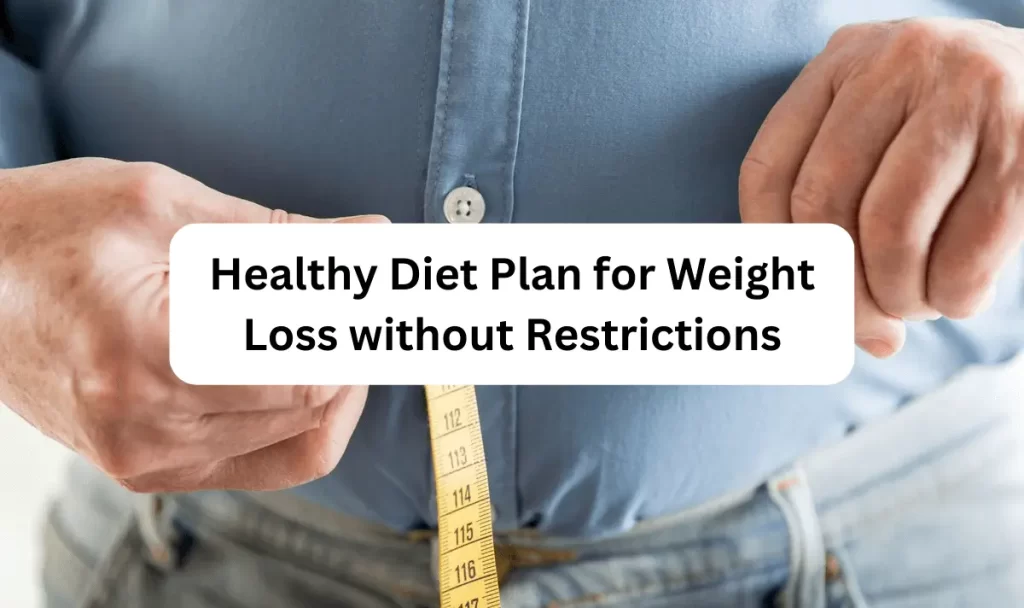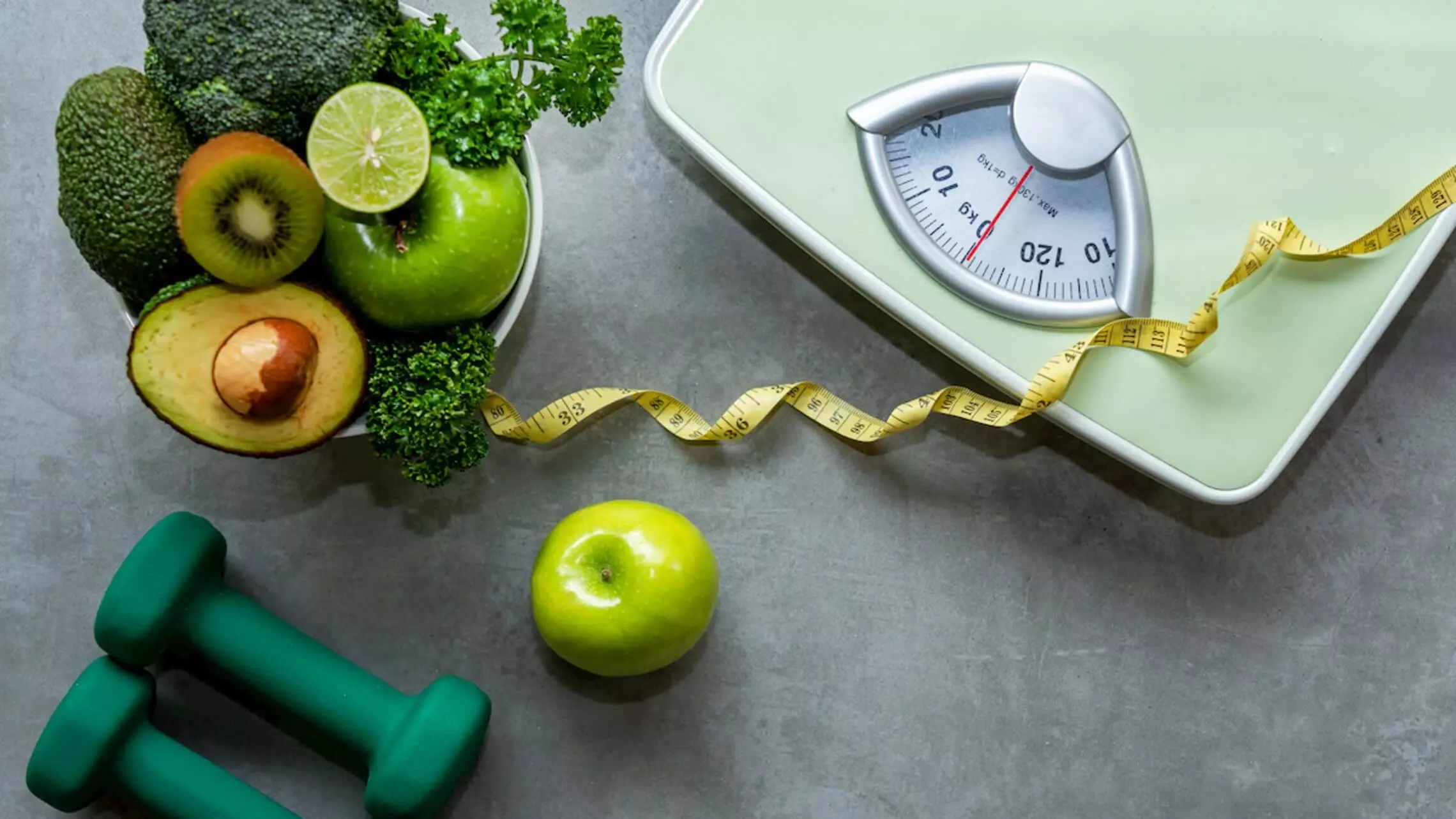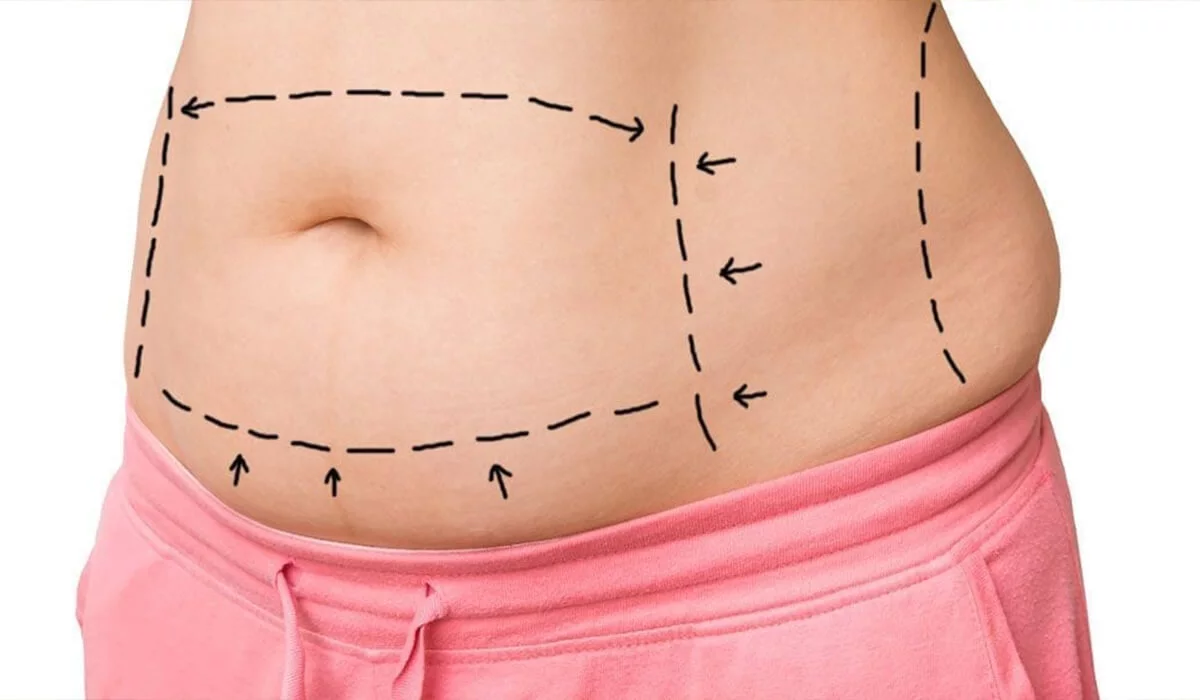Healthy Diet Plan for Weight Loss without Restrictions

When it comes to weight loss, many people associate it with restrictive diets and deprivation. However, a healthy diet plan for weight loss doesn’t have to be restrictive. By adopting a balanced approach and making mindful choices, you can achieve your weight loss goals while still enjoying a variety of delicious foods. In this article, we will explore an informative and practical diet plan that promotes weight loss without unnecessary restrictions.
Content
Further Reading Suggestion for you: Effective Home Exercises for Lower Back Pain: Relieve Discomfort Naturally
Understanding the Basics of Weight Loss

To embark on a successful weight loss journey, it’s essential to understand the basics of weight loss. Simply put, weight loss occurs when you consume fewer calories than you burn. However, this doesn’t mean you have to starve yourself or follow extreme diets. Instead, focus on creating a calorie deficit through a balanced and sustainable approach.
Importance of a Balanced Diet
A balanced diet is key to a healthy weight loss plan. It ensures you receive all the essential nutrients your body needs while creating a calorie deficit. Include a variety of food groups such as fruits, vegetables, lean proteins, whole grains, and healthy fats in your daily meals.
Incorporating Whole Foods
Whole foods are unprocessed or minimally processed foods that are rich in nutrients. They are an excellent addition to a weight loss diet as they provide more nutritional value and are generally lower in calories. Fill your plate with colorful fruits and vegetables, whole grains, lean proteins, and natural sources of healthy fats.
Portion Control and Mindful Eating
Portion control plays a crucial role in weight management. Be mindful of your portion sizes and listen to your body’s hunger and fullness cues. Slow down and savor each bite, paying attention to the taste and texture of your food. Avoid distractions while eating to prevent overeating.
Hydration and Its Role in Weight Loss

Staying hydrated is often overlooked but is essential for weight loss. Water helps boost your metabolism, keeps you feeling full, and aids in digestion. Aim to drink an adequate amount of water throughout the day and replace sugary beverages with water or herbal teas.
The Power of Regular Exercise
While diet plays a significant role in weight loss, exercise is equally important. Incorporate both cardiovascular exercises, such as walking, running, or cycling, and strength training into your routine. Exercise not only burns calories but also improves overall health and helps build lean muscle mass.
Managing Stress and Sleep
Stress and lack of sleep can sabotage your weight loss efforts. High stress levels trigger emotional eating, while inadequate sleep disrupts hormonal balance and increases cravings. Practice stress management techniques such as meditation or yoga, and aim for 7-9 hours of quality sleep each night.
Healthy Snacking Options
Snacking can be a part of a healthy weight loss plan if you make smart choices. Opt for nutritious snacks such as fresh fruits, raw nuts, Greek yogurt, or vegetable sticks with hummus. Be mindful of portion sizes and avoid mindless snacking out of boredom or emotional triggers.
Mindful Eating for Long-Term Success
Mindful eating involves paying full attention to the eating experience, being aware of hunger and fullness cues, and savoring each bite. By practicing mindful eating, you can develop a healthier relationship with food, make conscious choices, and prevent overeating.
Staying Motivated on Your Weight Loss Journey
Maintaining motivation is crucial for long-term weight loss success. Set realistic goals, track your progress, and celebrate milestones along the way. Surround yourself with a supportive network and seek inspiration from success stories or role models who have achieved their weight loss goals.
Celebrating Non-Scale Victories
Weight loss shouldn’t be solely measured by numbers on a scale. Celebrate non-scale victories, such as increased energy levels, improved mood, or fitting into smaller clothing sizes. These achievements reflect the positive impact your healthy diet and lifestyle choices have on your overall well-being.
Dealing with Plateaus

It’s common to experience weight loss plateaus during your journey. Instead of getting discouraged, use plateaus as an opportunity to reassess your habits and make necessary adjustments. Tweak your diet and exercise routine, try new recipes, or seek advice from a nutritionist or personal trainer.
Seeking Professional Guidance
If you feel overwhelmed or unsure about creating a personalized weight loss plan, consider consulting a registered dietitian or nutritionist. They can provide expert guidance, tailor a plan to your specific needs, and help you overcome any challenges you may encounter along the way.
Embracing a Sustainable Lifestyle
Lastly, remember that weight loss is not a temporary fix but a long-term commitment to a healthier lifestyle. Embrace sustainable habits that you can maintain even after reaching your goal weight. Make gradual changes, be patient with yourself, and focus on overall well-being rather than just the number on the scale.
Related Suggestion: Natural Remedies for Migraines: Find Relief Without Medication
Conclusion
Achieving weight loss without unnecessary restrictions is possible through a balanced and sustainable approach. By incorporating whole foods, practicing portion control, staying hydrated, exercising regularly, managing stress, and seeking professional guidance when needed, you can reach your weight loss goals while enjoying a healthier and more fulfilling life.
Can I enjoy my favorite foods while following a healthy weight loss plan?
Yes, moderation is key. You can still enjoy your favorite foods as long as you practice portion control and make mindful choices.
How long will it take to see results with a healthy diet plan?
The timeline varies for each individual. Sustainable weight loss is gradual and depends on factors such as starting weight, metabolism, and lifestyle habits.
Is exercise necessary for weight loss?
While a healthy diet is crucial, exercise plays a vital role in weight loss by increasing calorie burn, improving metabolism, and promoting overall health.
Can I follow this diet plan if I have dietary restrictions or allergies?
Yes, the principles of a healthy diet plan can be adapted to accommodate various dietary restrictions or allergies. Consult a professional for personalized advice.
How do I maintain weight loss once I’ve reached my goal?
Focus on maintaining a balanced and healthy lifestyle, continue making mindful choices, and stay active to sustain your weight loss results in the long run.

Alissa Edwards a health blogger, but her words have the power to change your life. She is an avid reader and she loves nothing more than curling up with a good book. She always strives for perfection in everything she does, so it’s no surprise that she plans on becoming the next JK Rowling one day!




